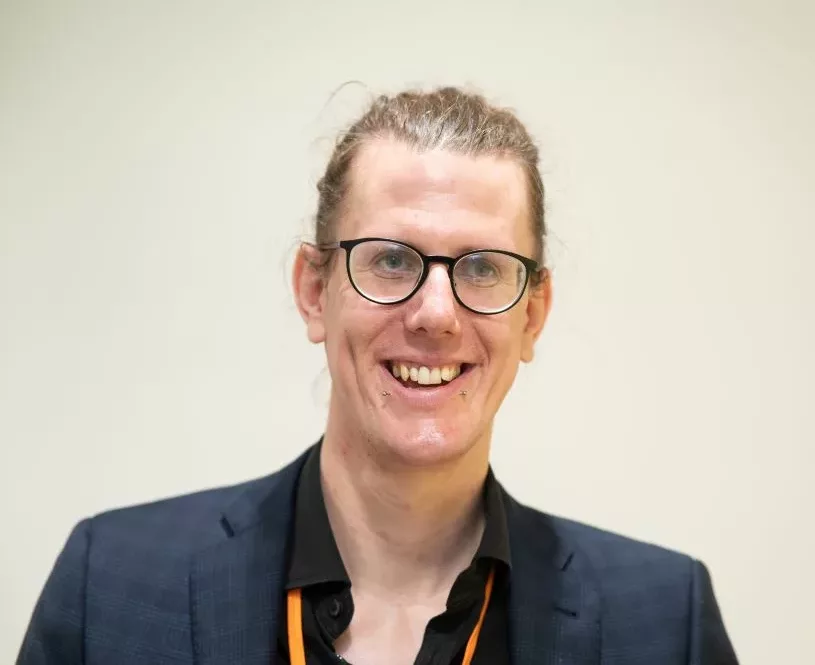
19 Jun 2023 Research
Leukaemia UK research paves the way for personalised lymphoma treatment
Despite promising trials, standard treatment for diffuse large B-cell lymphoma (DLBCL) hasn’t changed in a decade. New treatment strategies for this type of blood cancer are urgently needed. Could the virtual world of computer simulations help find the best treatment options for real patients?
 Leukaemia UK John Goldman Fellow, Dr Simon Mitchell, and his research team have been working hard to accelerate progress towards more effective treatments for DLBCL – a type of lymphoma that affects over 5000 people each year.
Leukaemia UK John Goldman Fellow, Dr Simon Mitchell, and his research team have been working hard to accelerate progress towards more effective treatments for DLBCL – a type of lymphoma that affects over 5000 people each year.
In the last few weeks, the team have published important findings in two top scientific journals – Frontiers in Oncology and Systems Biology and Applications, both showcasing the power of simulations – a sophisticated computer modelling technique used to mimic the behaviour of disease, with the aim of finding better ways to treat it.
Dr Mitchell and his team developed a new way to measure NF-κB – one of the key proteins controlling B-cell lymphoma, using an analysis technique they call “NF-κB fingerprinting”. These fingerprints, along with computer simulations, revealed striking diversity between sub-groups of lymphoma cells and distinct differences in healthy vs cancerous cells. The findings provided vital clues about how these cells are likely to behave – and importantly, how they might respond to treatments.
Historically, treatments aiming to block the action of this protein have had limited success. But taking into account the vast differences between these cancer cells could be key to getting the right drugs into the right patients.
In their second publication in as many weeks, Dr Mitchell and his team created a library of ‘virtual lymphoma cells’ – simulations that captured the mutations seen in DLBCL patients, which they used to explore the action of different drugs. This sophisticated system was able to identify the best combination of drugs to match each virtual lymphoma. The researchers hope to develop tests powered by simulations, to be used at diagnosis, predicting which treatment a person’s cancer is most vulnerable to.
The work lays strong foundations for using virtual patients to bring personalised medicine to the clinic – working towards a future where simulations of each patient could be created at diagnosis and used to find the best treatment option to target the Achilles’ heel of each patient’s disease, unlocking the potential of personalised medicine.
“These two Leukaemia UK funded studies allowed us to show that computer simulations can predict how lymphoma cells respond to signals they see in the body, and predict how lymphoma cells respond to drugs they see in the clinic. A huge thank you to all of Leukaemia UK’s supporters who make this work possible, and my talented team and collaborators for their hard work. We’re excited to push these approaches towards the clinic, and use simulations to get the right drugs to the right people. Watch this space!” – Dr Simon Mitchell
Find out more about Dr Mitchell’s research.
Related posts
22 May 2023
Can the unique differences between stem cells tell us how well CML treatment will work?
What if we could predict how chronic myeloid leukaemia (CML) patients will respond to treatment? Could the unique signatures of CML stem cells hold the key to personalising treatment for…
21 April 2023
Trailblazing research project announced to exploit novel weaknesses in one of the least survivable cancers
A pioneering new study hopes to accelerate progress towards a new treatment for acute myeloid leukaemia (AML) in research announced today on World AML Day by Leukaemia UK. University of…
10 January 2023
Clinical trial begins for pioneering new cancer treatment
Dr Konstantinos Tzelepis was awarded a Leukaemia UK research fellowship in 2020 and has developed a new class of cancer drug with the potential to treat leukaemia.
29 November 2021
John Goldman Fellowship awarded to Dr Pramila Krishnamurthy
Leukaemia UK is proud to announce Dr Pramila Krishnamurthy of King’s College Hospital and King’s College London as a Leukaemia UK John Goldman Fellow co-funded by Rosetrees Trust. Dr Krishnamurthy will be using the fellowship to better understand why some leukaemia patients relapse following a stem cell transplant, and how donor lymphocyte infusion can help prevent this.